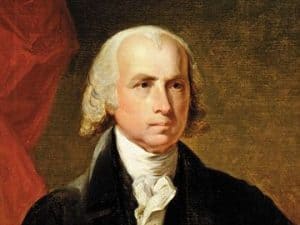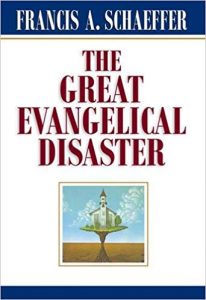Only when the human spirit is allowed to invent and create, only when individuals are given a personal stake in deciding economic policies and benefiting from their success—only then can societies remain economically alive, dynamic, prosperous, progressive and free.
—Ronald Reagan—
To be free is better than to be unfree—always. Any politician who suggests the opposite should be treated as suspect.
—Margaret Thatcher—
The left works 24/7 to disseminate its destructive ideas.…Leftists have to lie to persuade people that socialism works and capitalism is evil. At some point, we must successfully make the case that the left must be judged by its policy failures rather than its supposedly good intentions.
—David Limbaugh—
Key point: Even though the free enterprise economic system isn’t perfect and even though it can be exploited and abused, when it’s properly explained and understood, it aligns beautifully with Scripture. And that’s just for starters.
Parts 2 and 3 of this series are available on one page here.
Title: “Ten Ways the Free Enterprise Economic Model Aligns with Scripture”
In part 1, keeping in mind these definitions of
-
- socialism,
- Marxism,
- communism,
- capitalism or free enterprise, and
- social justice,
we determined that socialism and its relatives, communism and Marxism, are incompatible with biblical teachings. We also saw that “[s]ocial justice…tilts strongly in the direction of socialism, Marxism, and communism—and away from free enterprise.” Is a free enterprise economic system biblical? In Part 2 we we began to explore this question, examining whether or not, and if so to what extent, a free enterprise economic model aligns with biblical teachings.
In part 2, we considered another key term as well: interventionism. Go to this page for definitions of all our key terms.
With this paragraph from an article titled “Socialism, Capitalism, and the Bible,” seminary professor Ronald Nash provided the groundwork for our discussion.
Capitalism is not economic anarchy. It recognizes several necessary conditions for the kinds of voluntary relationships it recommends. One of these presuppositions is the existence of inherent human rights, such as the right to make decisions, the right to be free, the right to hold property, and the right to exchange what one owns for something else. Capitalism also presupposes a system of morality. Capitalism should be thought of as a system of voluntary relationships within a framework of laws which protect peoples’ rights against force, fraud, theft, and violations of contracts. “Thou shalt not steal” and “Thou shalt not lie” are part of the underlying moral constraints of the system. Economic exchanges can hardly be voluntary if one participant is coerced, deceived, defrauded, or robbed.
Taking one by one the concepts Nash mentions, we observed,

-
- Capitalism, which Nash rightly contends “is not economic anarchy,” is maintained in the context of an ordered freedom that Scripture upholds and makes possible.
- The “voluntary relationships” and the voluntary involvement of individuals that make capitalism work are antithetical to government orchestration of private decisions and actions. Scripture affirms personal freedom in the economic realm.
- A free enterprise economic model rests on the principle that people have “inherent human rights” consistent with their having been created by God “in His image.”
- In the context of a free market economy, workers and supervisors, buyers and sellers, producers and consumers—all who participate—can act to fulfill the cultural commission God gave the human race in Genesis 1:28.
- Both capitalism and Scripture affirm the individual sovereignty of human beings, including “the right to make decisions.”
- “The right to be free” also is an integral part of free enterprise—and a right upheld in God’s Word.
Let’s continue. We have four more items to consider.

Seventh, “the right to hold property” is an inherent human right that is essential if the free enterprise system is going to work. We see the right to own and manage one’s property throughout Scripture. Most notably, we see it embedded in the Ten Commandments. “You shall not steal,” the Eighth Commandment, and “You shall not covet,” the Tenth Commandment, are clear affirmations of property rights. Note carefully how the Tenth Commandment reads in its entirety:
You shall not covet your neighbor’s house; you shall not covet your neighbor’s wife, nor his male servant, nor his female servant, nor his ox, nor his donkey, nor anything that is your neighbor’s (emphases added).
How many possessive nouns and pronouns do we see in this commandment? Seven, and the seventh is all-inclusive.

The Founders of America understood that property rights were sacred. John Adams (1735-1826) said, “If ‘Thou shalt not covet,’ and ‘Thou shalt not steal,’ were not commandments of Heaven, they must be made inviolable precepts in every society, before it can be civilized or made free.” He also said, “The moment the idea is admitted into society that property is not as sacred as the law of God, and that there is not a force of law and public justice to protect it, anarchy and tyranny commence.”

Founding Father James Madison (1751-1836) is known as the Father of the Constitution. He declared, “Government is instituted to protect property of every sort…. This being the end of government, that alone is a just government which impartially secures to every man whatever is his own.”
This article provides additional helpful information about property rights affirmed in Scripture.
Eighth, “the right to exchange what one owns for something else” also is essential to free enterprise capitalism. We see evidence of this right throughout Scripture, even as early as Genesis 23:1-20 (esp. vv. 7-18). In this passage, Sarah had passed away and her widower, Abraham, was looking for a suitable place to bury her. Sarah died in Hebron in Canaan, and at the time, Abraham was a foreigner in that land (although God had promised to give the land to him and his descendants). Abraham was well respected, and the leaders in the area told him, “[Bury] your dead in the choicest of our burial places” (v. 6). Abraham indicated he was interested in using “the cave of Machpelah,” which was owned by “Ephron the son of Zohar” (vv. 8-9). He said, “Let him give [sell] it to me at the full price, as property for a burial place among you” (v. 9). Ephron offered to give Abraham “the field and the cave that is in it,” but Abraham emphasized he wanted to buy it (vv. 10-13). Ephron responded by saying the land was “worth four hundred shekels of silver” but added, “What is that between you and me? So bury your dead” (vv. 14-15). Verses 16-18 tell us,
16 And Abraham listened to Ephron; and Abraham weighed out the silver for Ephron which he had named in the hearing of the sons of Heth, four hundred shekels of silver, currency of the merchants.
17 So the field of Ephron which was in Machpelah, which was before Mamre, the field and the cave which was in it, and all the trees that were in the field, which were within all the surrounding borders, were deeded 18 to Abraham as a possession in the presence of the sons of Heth, before all who went in at the gate of his city.
In this early passage of Scripture, “the right to exchange what one owns for something else” is vividly evident. Note that Ephron’s offer to give Abraham the field and the cave is clear evidence he owned it and had control over it. Abraham respected Ephron’s property rights by paying him what the land was “worth” (v. 15). Furthermore, he didn’t coerce or beg Ephron to sell. In verse 15, a Hebrew word representing the English word worth actually isn’t present in the text—but the idea clearly is. Literally, the Hebrew text reads, “…the land four hundred shekels of silver.”

After “Abraham weighed out the silver for Ephron which he had named in the hearing of the sons of Heth” (v. 16) and paid him, the property was “deeded to Abraham as a possession” (vv. 17-18). Following the transaction, the money that previously had belonged to Abraham was Ephron’s, and the field that earlier been Ephram’s now belonged to Abraham.
It is difficult to overemphasize the importance of this passage of Scripture. Hear what historian David Barton says about it in the following clip from the February 6, 2020 episode of Walbuilders Live! The first voice you’ll hear will be that of co-host Rick Green.
Numerous early settlers in North America were heavily influenced by the Bible and the biblical principle of property rights. You can learn more from this expanded clip excerpted from the same WallBuilders Live! program.
Genesis 23:1-20, of course, is but one Bible passage. In the seven parables of Jesus we considered last time when we discussed the fifth item on our list, “the right to exchange what one owns for something else” is a given. It’s a given in these passages as well. Note that in Acts 5:1-9, even when Ananias and Sapphira paid with their lives for lying to the Holy Spirit and the early church about the amount of money they had contributed, Peter affirmed their property rights. He said to Ananias,
Ananias, how is it that Satan has so filled your heart that you have lied to the Holy Spirit and have kept for yourself some of the money you received for the land? Didn’t it belong to you before it was sold? And after it was sold, wasn’t the money at your disposal? What made you think of doing such a thing? You have not lied just to human beings but to God (Acts 5:3-4 NIV).
There’s more. These three passages speak of “buying” intangible assets. While they are emphasizing the acquiring of spiritual treasures, the analogy used assumes individual sovereignty and the right of choice. Individual freedom prevails in both the economic arena and with regard to spiritual benefits.1 While spiritual assets definitely can’t be bought with money—the passages make that clear—we do see the principles of freedom and ownership upheld.
Ninth, Dr. Nash observes, “Capitalism also presupposes a system of morality.” Mark it down. The kind of morality capitalism presupposes is exactly the kind Scripture commands.

These passages talk about the importance of accurate weights and scales in economic transactions, as well as integrity in general. This is the “system of morality” that keeps a free market economy from degenerating into chaos. On the positive side, it makes freedom work because it places a check on exploitation, abuse, and greed. Using his own words, Dr. Nash essentially says this in his next sentence: “Capitalism should be thought of as a system of voluntary relationships within a framework of laws which protect peoples’ rights against force, fraud, theft, and violations of contracts.” Then he adds, “‘Thou shalt not steal’ and ‘Thou shalt not lie’ are part of the underlying moral constraints of the system.” (You’ll note that these commands were included in the list of divine principles we cited at the beginning of this paragraph.)
Capitalism should be thought of as a system of voluntary relationships within a framework of laws which protect peoples’ rights against force, fraud, theft, and violations of contracts.
—Ronald Nash—
Tenth, Dr. Nash elaborates by making this negative observation. “Economic exchanges can hardly be voluntary if one participant is coerced, deceived, defrauded, or robbed.” While voluntary activities make free enterprise work, moral guidelines act to restrain all sorts of abuses—abuses that would hinder both personal freedom and productivity. In other words, the free market can only work its “magic” if the public recognizes and heeds moral restraints, which prevent exploitation.
 Our tenth consideration, therefore, is about balance—the delicate balance between order and liberty in a free market economy. In his last book, The Great Evangelical Disaster (1984), Francis Schaeffer wrote of this balance. He spoke of form on one hand, and freedom on the other.
Our tenth consideration, therefore, is about balance—the delicate balance between order and liberty in a free market economy. In his last book, The Great Evangelical Disaster (1984), Francis Schaeffer wrote of this balance. He spoke of form on one hand, and freedom on the other.
In our own country we have enjoyed enormous human freedom. But at the same time this freedom has been founded upon forms of government, law, culture, and social morality which have given stability to individual and social life, and have kept our freedoms from leading to chaos. There is a balance here between form and freedom which we have come to take as natural in the world. But it is not natural. And we are utterly foolish if we do not recognize that this unique balance which we have inherited from the Reformation thought-forms is not automatic in a fallen world. This is clear when we look at the long span of history. But it is equally clear when we read the daily newspaper and see half the world locked in totalitarian oppression.2
Where do we find the right balance between order and liberty, or, in Schaeffer’s words, the proper balance between “form and freedom” that is so essential to a free market economy? The answer is clear. We find it in God’s Word. Moreover, history testifies that our founders, as well as until recently our nation’s leaders, have upheld this balance as essential.
The Bottom Line

Recognizing the alignment between Scripture and the principles that make capitalism work, Dr. Nash concludes his article with these important statements.
Little can be done to prevent human beings from wanting to be rich. But what capitalism does is channel that desire into peaceful means that benefit many besides those who wish to improve their own situation.
Which choice then should I, as a Christian, make in the selection between capitalism and socialism? Capitalism is quite simply the most moral system, the most effective system, and the most equitable system of economic exchange. When capitalism, the system of free economic exchange, is described fairly, there can be no question that it, rather than socialism or interventionism, comes closer to matching the demands of the biblical ethic.
Capitalism is quite simply the most moral system, the most effective system, and the most equitable system of economic exchange. When capitalism, the system of free economic exchange, is described fairly, there can be no question that it, rather than socialism or interventionism, comes closer to matching the demands of the biblical ethic.
—Ronald Nash—
I’ll go even further than Dr. Nash. While capitalism has its imperfections, the free enterprise model as he described it doesn’t merely align with biblical truth.
It rests on it.
Concluding quotes:
Capitalism works better than it sounds, while socialism sounds better than it works.
—Richard Nixon—
History tells us that the threat to prosperity is not debt but socialism.
—George Guilder—
Enough generations of socialist policies have now passed for us to judge their effects. They are bleak. Socialism undermines the character of a nation and of its citizens. In simpler words, socialism makes people worse.
—Dennis Prager—
Modern society is hypnotized by socialism. It is prevented by socialism from seeing the mortal danger it is in. And one of the greatest dangers of all is that you have lost all sense of danger, you cannot even see where it’s coming from as it moves swiftly towards you.
—Aleksandr Solzhenitsyn—
Socialism of any type leads to a total destruction of the human spirit.
—Aleksandr Solzhenitsyn—
No, the Bible does not teach socialism. What the Bible teaches is freedom and responsibility and work. And we are jettisoning all of these in the socialistic state.
—D. James Kennedy—
Copyright © 2020 by B. Nathaniel Sullivan. All rights reserved.
Unless otherwise indicated, Scripture has been taken from the New King James Version®. Copyright © 1982 by Thomas Nelson, Inc. Used by permission. All rights reserved.
Scripture references cited in this article marked NIV have been taken from The Holy Bible, New International Version®, NIV® Copyright © 1973, 1978, 1984, 2011 by Biblica, Inc.® Used by permission. All rights reserved worldwide.
top image credit: Lightstock
image credit: Dr. Ronald Nash
Notes:
1Alvin J. Schmidt, How Christianity Changed the World, (Grand Rapids: Zondervan, 2004), 205. Dr. Schmidt wrote, “Just as God does not want people to be coerced in spiritual matters, so too he does not want them to be coerced in earthly matters, for instance, in their economic activities.”
2Francis Schaeffer, The Great Evangelical Disaster, (Westchester, IL: Crossway Books, 1984), 21-22.

Be First to Comment